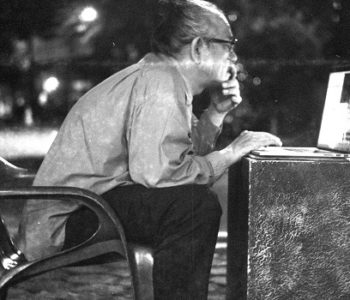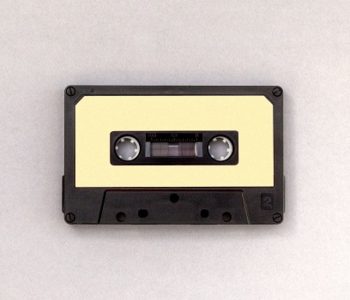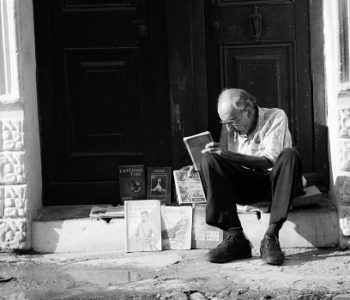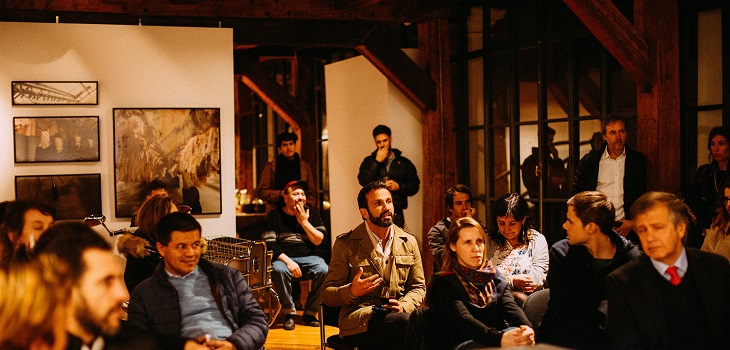 Reader Lifestyle
Reader Lifestyle
Here’s the Scoop on Live Poetry Readings
HOW TO FIND AND EXPERIENCE LIVE POETRY EVENTS NEAR YOU LIKE A TRUE MEMBER OF THE LITERATI
So you want to listen to a live poetry reading? Enamored with the printed word, you’ve recently been badgered by the thought that verse might be even better if you hear the words reverberated straight out of the horse’s mouth (and poets do tend to be quite horse-faced).
You dream of sitting rapturously as Frank O’Hara reads “Having a Coke with You” or Gertrude Stein mesmerizes the room with “OBJECTS” from Tender Buttons. Motivated, you realize that you have no idea what a poetry reading is like, let alone how to find one. Do they take place in secret rooms hidden behind bookcase doors? Do cedar incense and absinthe vapors wraith across the stage and infuse the poet with cosmic wisdom? Do the events conclude with a naked dance at sunrise? Who knows?
I do! You’ve come to the right place to figure out how to get to the right places to get some good stanzas in your earholes.
How to Find Live Poetry Readings in the 21st Century
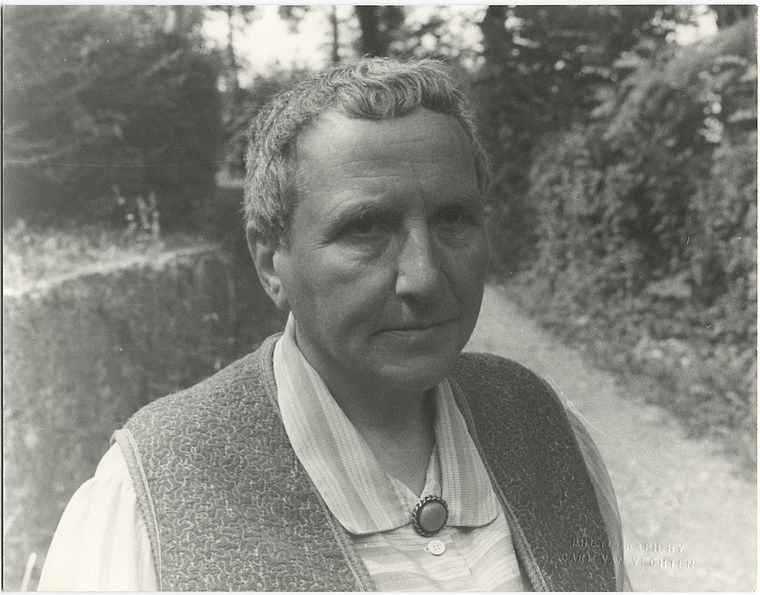
1. Google Your Favorite Poet
At which point you’ll remember that many of your favorite poets are already in caskets. Though their words haunt us across the decades, Stein, O’Hara, and all the others are quite deceased. Thus, you’ll have to settle for a living poet — a contemporary, if you will. That’s still a fine lot to choose from, so you might first try Googling a current poet’s name, followed by “poetry readings.” For example, I would type in “Jane Hirshfield poetry reading” or “Eileen Myles poetry reading.” The results will usually be a long list of past live poetry readings, but if you’re very lucky, the writer may be touring, with an upcoming event in your general vicinity. Poets tend to pop around from metro area to metro area, so if you’re patient (and I mean capable of waiting for years), they’ll likely end up at a university stage near you.
2. Google ‘Poetry Events’ in Your Area Once You Realize that Most of Your Favorite Poets Are Dead, and Most Contemporary Ones Are, In Fact, Not Touring
Any live poetry reading, regardless of the speaker, will suffice, since they seem so hard to come by. Poetry is the most niche art — a real nook and cranny craft — so keep your search radius broad — region-wide, ideally. You’ll start typing in things like:
- “live poetry readings orange county”
- “poetry events los angeles”
- “poets near me”
- “why are there so few poetry readings”
- “is anybody out there”
- “why is this hair growing sideways”
- “live poetry readings southern california”
The right search terms will return hundreds of thousands of results for live poetry events — a delightful plethora — until you realize that 95% are for past readings that, oddly, were mostly located in Iceland. But you will persevere and uproot the name of the self-proclaimed “Best Poetry Open Mic in Orange County,” pleased to see that it’s at that cafe where you’ve had coffee before (what are the chances of that!?), and an event is going down this very evening.
Occasionally, you’ll dig up a bigger reading — a tuber that dingles of repute with phrases like “organized by” and “auditorium” and “featuring such and such award winner.” Curious, you’ll click through to read about the hosting venue and realize that the upcoming reading is just one of many on the calendar of this poetic haven in your local region. That’s why, if you live in California, you can also:
3. Read My Blog Post About 10 SoCal Literary Landmarks So You Can Bookmark Places that Regularly Host Live Poetry Readings, and If You Live Elsewhere, You Can Brainstorm Literary Establishments Like Libraries, Bookstores, and Schools, and Look at Their Calendars
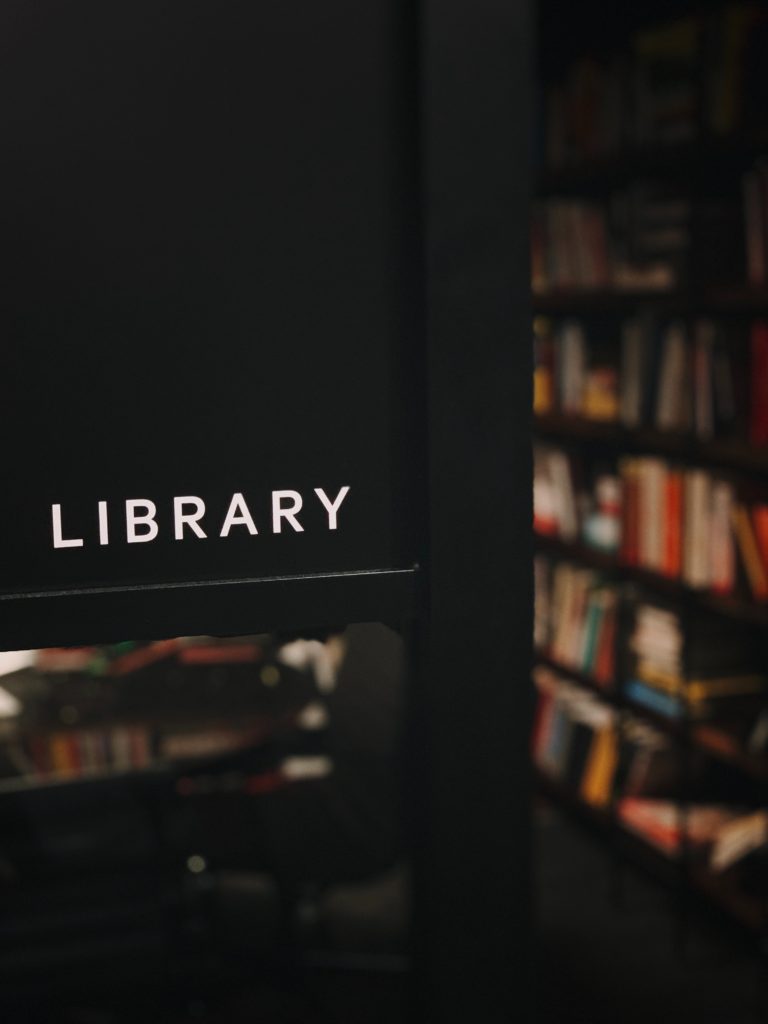
From the 1888 Center in Tustin, to the Aloud Series at the L.A. Central Library, literary hubs offering consistent lineups of poets punctuate Southern California. But the same applies elsewhere: whether you’re in Seattle or New York, once you know which venues near you have a soft spot (or should we say weak spot, since poetry is synonymous with poverty) for poetry readings, you can check out their calendars for future events that spark your interest. Going directly to the source is particularly important because many times the nitty-gritty on a venue’s calendar won’t pop up in Google’s search results.
But since that nearby Open Mic was hosting an event tonight, and you’re craving a cappuccino, you decide to head down there first…
What to Expect at an Open Mic Live Poetry Reading
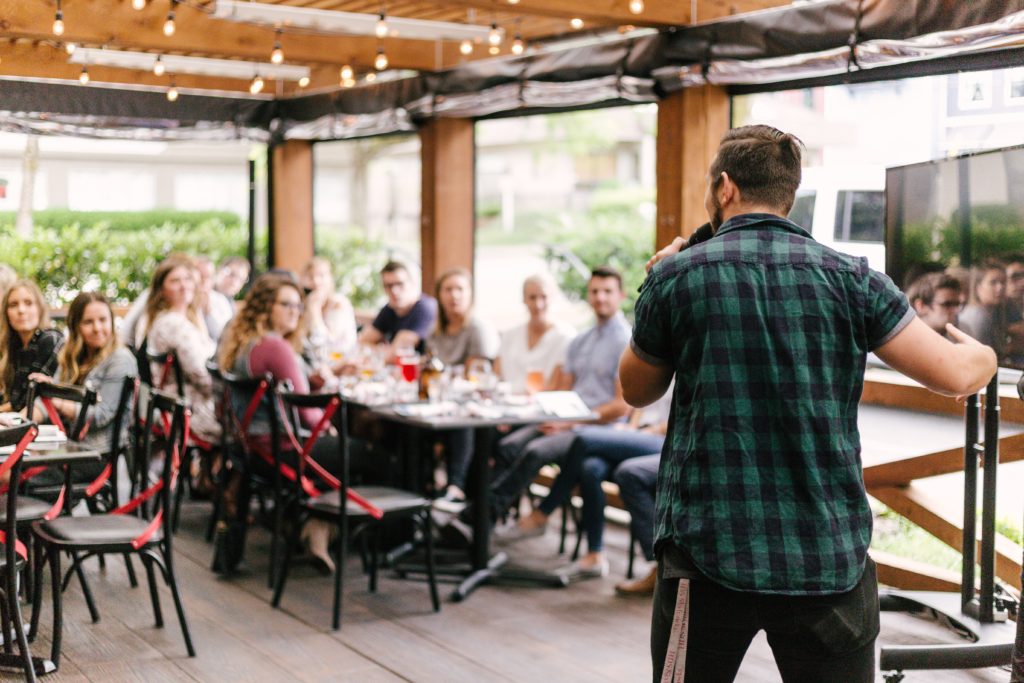
Open Mic — that sounds exciting, you think. Maybe I’ll even hop on stage and contribute to the creativity in the room. Just in case, you don your artsy trousers and fartsy shirt, and arrive at 6:30 to get a good seat for the 7:00 show.
Regulars are tucked into the shop’s corners, emanating bitter coffee and bitterness as you eyeball their seats. The cafe’s remaining chairs have been loosely arranged in front of a microphone, and after getting your cappuccino, you pick a spot right in front — which you will later realize was a fatal mistake because there’s no airflow or escape route, and poets are a view that you really don’t want to be close to: frazzle, wrinkle, frump, and gut.
The audience trickles in, jotting their names on the sign-up sheet, which you’re still working up the nerve to do, until a crowd larger than you expected peppers the room. Strangely, every attendee seems to be there only to hear themselves: you see them scouring their phones for their set pieces (though once they get on-stage, they always have to search again), or crinkling massive manuscripts, the sizes of which uproot a murky dread in you, like an ocean floor sand cloud billowing around an anchor’s plunk.
An MC steps up to the mic to blather on about buying a drink to support the venue and the reading’s rules, and then introduces the first poet as a local legend, a regular, a thrice self-published poet, and a dear friend. The poet bounds into the spotlight to the crowd’s clear delight. He jokes about having to search for his poems on his phone, and invites the audience to buy his chapbook on Amazon — but not during his set! And then he begins.
You are primed and ready for the lyricism to levitate you, for the imagery to puncture you softly like a lilac blossom pressed into your breast, for the nexus of sound and words to elevate the poet’s philosophy to universal revelation — a peeling back of a cosmic avocado skin to reveal the buttery green fruit and mahogany pit of existence.
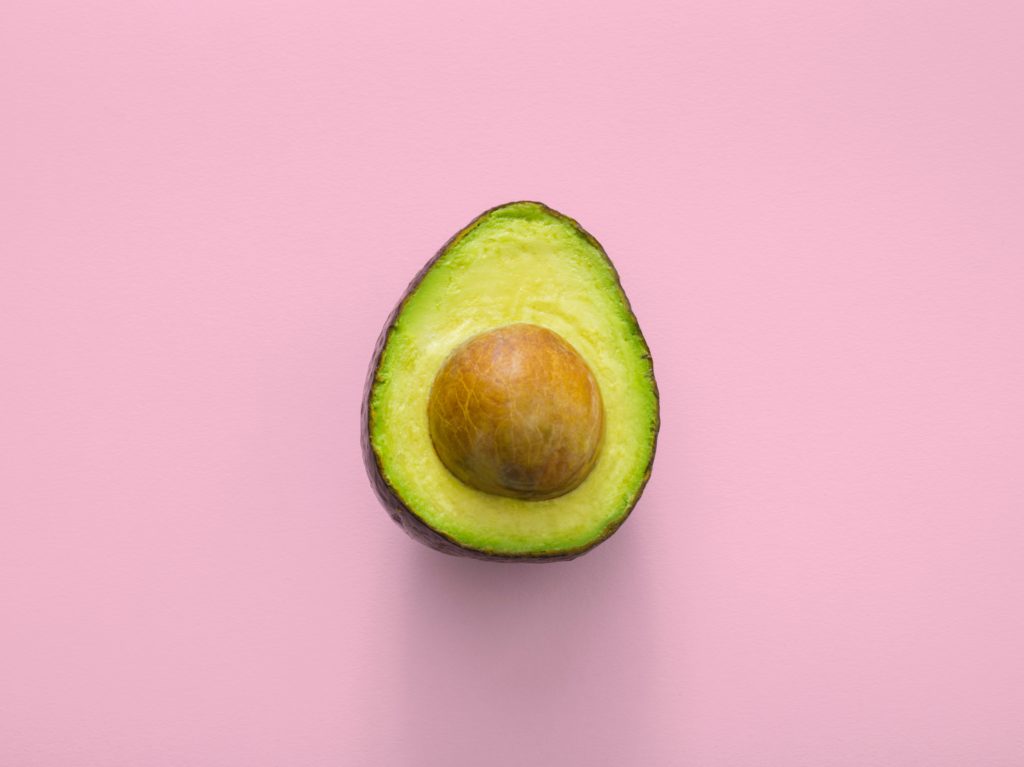
Instead, he stuffs this moldy loaf of bread in the holes on the side of your head:
She came and went
from the prison of my heart
like a bird. I felt her wings
flutter against my soul
and her breath like the wind
whispering in the tree
leaves as she left
still haunts my dreams.
Heart, heart, heart, soul, soul, soul, tired words, abstract ideas, simple rhymes, no imagery or imagery as stale as hard crust a duck picked up by the dumpster and dropped on your lap in a park as a prelude to the white crap it also just plopped onto your shoulder: the poetic atrocities that you will experience at an Open Mic Reading will make you wish you’d never ventured out in your creative pants to hear poetry out loud. And yet, the undiscerning crowds always love it — or at least, applaud so that they can also be applauded when they ascend and begin moaning the same drivel, everybody bolstering each other’s ego so that they all feel motivated to write more drivel.

Sometimes open mics will be fancied up with the tassel of a local poet who has made a name for themselves via a diarrhea-flow-self-publication of chapbooks and e-books and pieces featured in online publications that accept all content except good content. Do not be fooled by the unctuous marketing of these non-poets who have elevated themselves through quantity rather than quality — because ultimately their poems are as ugly as those being spewed into the open mic.

Indeed, about 9 seconds in, you’ll realize that you should have stayed in, or visited a bar, because you would have found more poetry there amid the peanut shell constellations and glass ring patterns, but because you don’t want your artsy fartsy outfit to go to waste, you stick it out for another hour, just barely quelling the urge to shout: “This is not poetry! Here’s why!” and providing a verbal editing session that will do nothing to help the writing being spouted aloud because the fact is that some people are just bad at poetry, and open mics is where they tend to gather, like flies speckling meadow muffins.
What to Expect at a Spoken Word/Slam Poetry Reading
You don’t need to expect anything because you won’t be attending one of these popular events. If you dare ignore my wisdom, you’ll end up at a reading that sounds like an open mic, smells like an open mic, causes indigestion like an open mic, and is simply an open mic reading with a different name — a name the participants invoke to explain away the dearth of imagery, linguistic poignancy, philosophy, and
What to Expect at Your First Real Live Poetry Reading

But you will persevere. You know that real poetry exists out there, and now that open mic poetry events are no longer on the table, you’ll have to drive the extra miles for one of those rare live poetry readings by a published poet who actually knows what they’re doing. Once you’ve settled on an event — someone whose book you already own and who’s reading in a university museum’s lecture hall — you’ll want to figure out the obvious necessities: location, parking, and admission.
Location
Where you go depends on where you depart from. Along the way, don’t forget to look at the ways that roads dissect space, and make cities, cities.
Parking
Where you park depends on how far you’re willing to walk, and whether or not you wore clogs with socks that slip. Never expect there to be special event parking for a poetry reading because no establishment thinks of poetry as special, except maybe your mom.
Admission
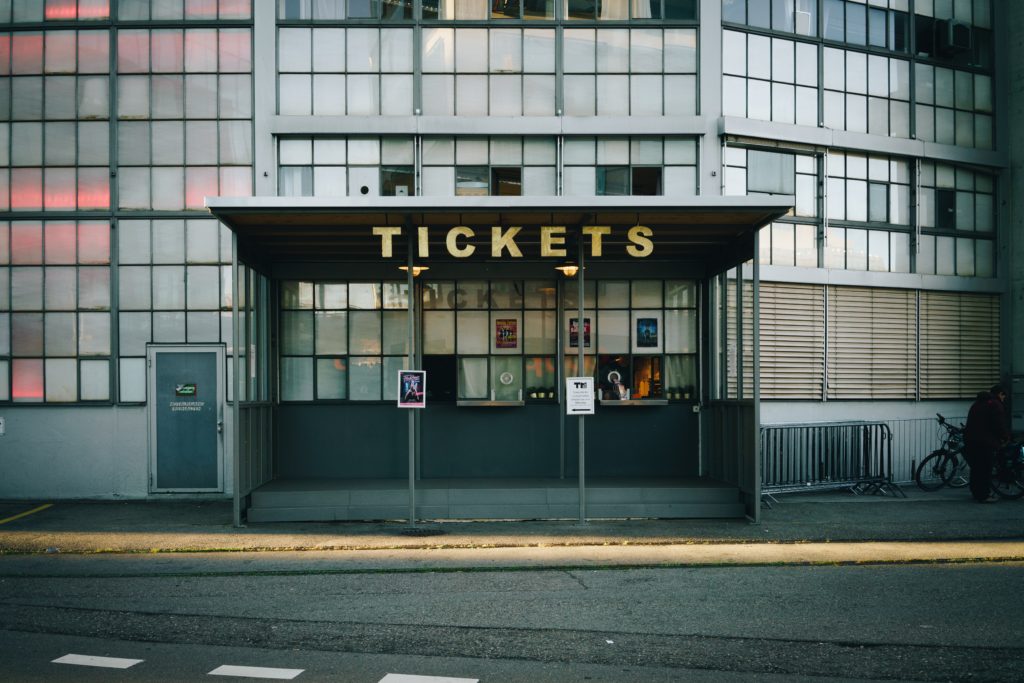
Since poetry readings already struggle to find attendees, they’re almost always free. Occasionally, the venue may require you to reserve your seat via an online ticket service, but you’ll be quite pleased to know that the total will still be $0. Considering this, you’ll promise to support the poet by buying their book, but later, as the evening draws to a close, you’ll decide to save your money for a bowl of yellow curry, since real poetry makes you hungry.
Though the venues will insist in their registration instructions that you must have your ticket to enter, in general, at event time, the box office usually ends up being so excited to have a line — a group of people that’s more than two — for a poetry event, nobody actually checks anything. I’m not saying don’t have it, but if you’re in the area and don’t have it, you might be able to still get in through the fundamental fact that poetry is not popular.
Arrival and Seating
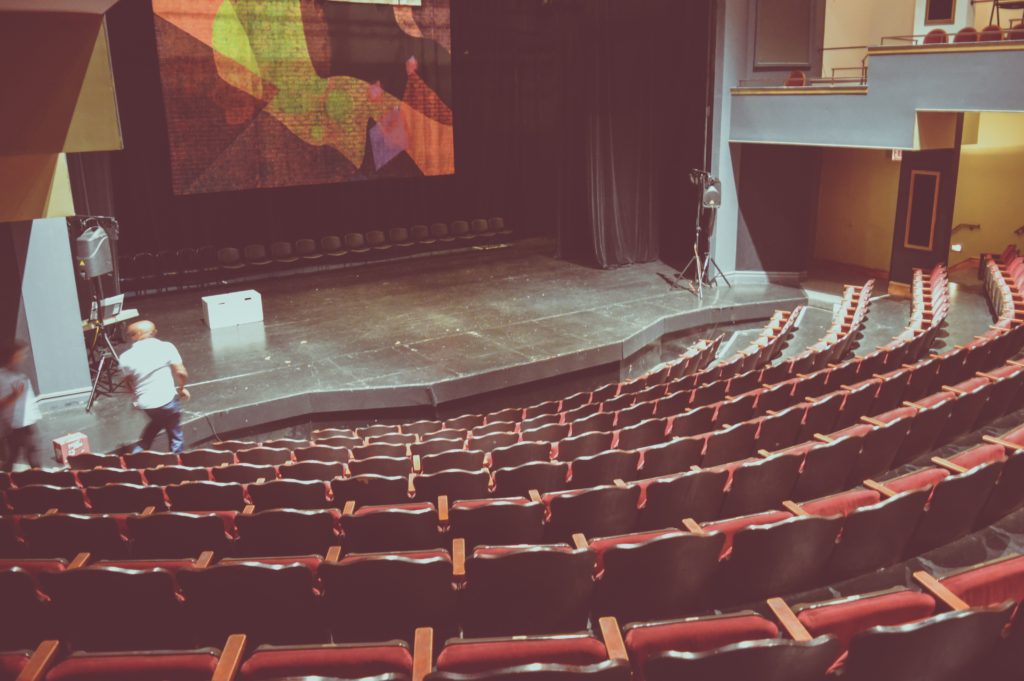
Do not arrive early. There’s no need. Poetry events tend to start unfashionably late, and if you get there before the appointed hour, you’ll find yourself drowning in empty seats and flashes of tweed as a professor flutters in the eaves. Only the uninitiated arrive before curtain-rise, eager to get what they think are the best seats — front row — but you already know that that’s exactly where you don’t want to be.
I recommend an end chair in one of the three rear rows (actually this goes for any event), for an easy escape just in case you realize you really don’t like the speaker. You’ll still be able to see them if you bring your spectacles, and will certainly be able to hear them because there’s always a microphone that’s either too low or too tall, which the poet will certainly joke about — more to quell their nerves than make a funny.
Etiquette at Live Poetry Readings
- Laugh softly at all of the poet’s unfunny jokes.
- Do not guffaw, snort, or chortle.
- Silence your cell phone and do not record the poet. You’re literati, and literati may surreptitiously take one picture, but know that the joy of life is to be in the moment, corporeally, not digitally.
- If you have to cough, you may do so once. But if you feel a tickle coming, it’s best to dash from the room, so that everyone looks at you and feels relieved that that person took their coughs outside. The same goes if you have a squawking child or a tendency to sniffle. Once you are quiet, you may peep at the door and slink back in between poems, but everyone would really prefer if you and your noises just left.
- DO NOT clap after each poem, even if the entire audience claps after each poem. The poet will even say at the start of their set, “Hold your applause until the end.’ However, a fellow audience member, enamored with their own percussion, will clap after the very first poem — every time, at least one fool will do it — and that will get several others tentatively pattering, until most people in the room are slapping their palms together after every damn poem for fear of appearing unappreciative to the poet’s wise words, though to you and the poet they appear idiotic because great thinkers know a poem is best followed by a swig of silence so that the lyric vibrations can resonate in the acoustic kettle that is quiet.
- After the live poetry reading, if you wend your way up to to the poet to present them with a witty wisdom nugget you’ve been sculpting all night, they won’t want your nugget if you aren’t buying their book. An acceptable alternative is to approach them with one of their books you already own (having carefully erased the pencil evidence that you bought it for $2 at a used bookstore) and quickly chuck the nugget at them as they sign your book. After all, it’s a poet’s job to bear the bruises of dull insight and find symphonies in the yellow, purple, and grey blemishes stippling their consciousness.
The Proceedings at Live Poetry Readings
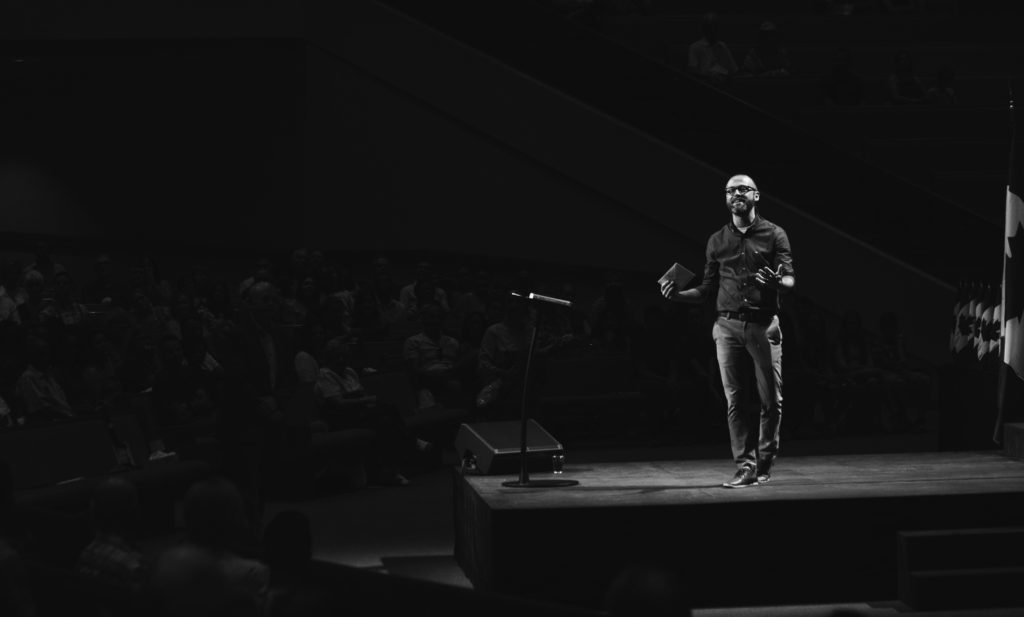

The MC, who’s usually a professor, a publisher, another author, etc., will clear their throat into the mic to quiet down the crowd that’s getting a little rowdy from the all the cups of free coffee-and-powdered-creamer-&-sugar-silt they’ve had from the refreshment table in the corner. In their moment of glory, they’ll list the featured poet’s accomplishments and then read through their own critical analysis of said poet’s work — an analysis they spent all month working on, delighted to share their reading thoughts with a literary crowd. Indeed, in this moment, you’ll become suddenly aware of being among good company: here are people who like words. If you can’t relax here, you can’t relax anywhere.
And so you’ll sit peacefully through their intro, until the featured poet shuffles up onto the stage, clutching a rumpled manuscript and a stack of their books. With some trepidation, you are primed and ready for the lyricism to levitate you, for the imagery to puncture you softly like a lilac blossom pressed into your breast, for the nexus of sound and words to elevate the poet’s philosophy to universal revelation — a peeling back of a cosmic avocado skin to reveal the buttery green fruit and mahogany pit of existence.
And this time, it happens. The poet settles into the sound of their poem, exhuming meaning through sonic power. The first poem they read is one you know — one everyone knows — which gets the claps going. After the applause settles, the poet segues into their next piece, offering clues into its origin, disproving Barthes, because a work and its author are inseparable, as an acorn always contains the oak it fell from.
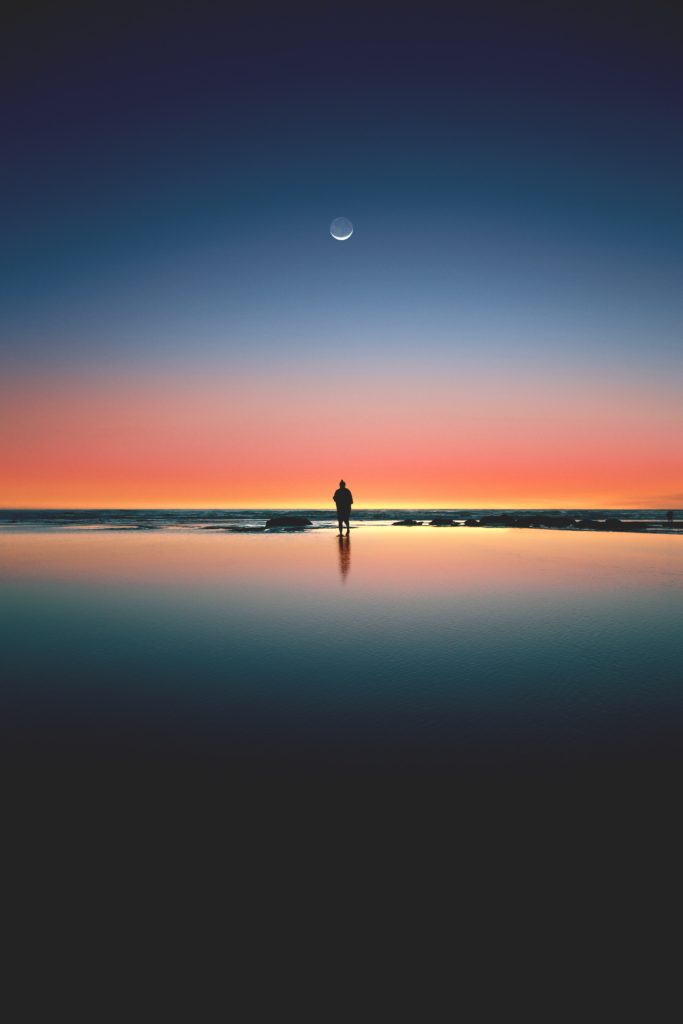
This order of events will continue: intro to poem, poem, frantic clapping, for around an hour. Poets rarely read their work in order — that is, they won’t pull out their book and start at page 1 — and instead traipse all over their oeuvre, even granting you access to works in progress. If you’re dying to hear a particular poem they skipped over, and you’re bold enough, you can hoot its name as they end their set, and unless they’re a fuddy duddy, they’ll acquiesce to your hooligan call and read one more.
Thus, what you can expect at a live poetry reading is around twenty poems brought to life by the living, breathing, palpitating, flushing, swallowing, hymning presence of the poet poised at the podium, ensorceling the room with syllables bounding about like a fluffle of rabbits, joined by the butterfly-wing whispers of aphorisms, and cricket chirrups of alliteration, the chameleon-movement of enjambment, the tree ring percolation of internal rhyme, and all the poetic lines forming and fading like those woven into the sand by waves.
This doesn’t happen with every poem, nor does it happen at every reading. But when it does, you can finally understand why poetry began as an oral form — and how this tradition continues in the minds of great writers around the world — the words whirring through their lobes as the moon rises, and their words still ricocheting in your mind as your stir your tea amid the quiet.
